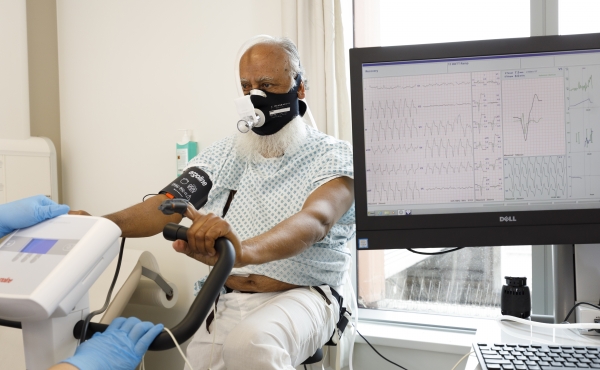Before you run a marathon, have you asked the correct questions? Why patients can benefit from a preparation list

Lawrence Mudford has had a 38-year healthcare career working as a dentist and dental educator within both primary and secondary care. This has included serving on the board of the Faculty of General Dental Practice and as a member of the General Dental Council.
Have you ever thought of the questions that patients and clinicians may ask before an operation is contemplated, remembering the fact that having an operation has similarities to running a marathon?
Clinician questions
If a clinician was asked: 'What important questions or thoughts do you think that patients have, as they come to an operation?' - they may, based on their training, experience and tacit knowledge, expect a top 10 set of answers from that patient, similar to below:
'I want -'
- The right surgery
- To be in the best shape before surgery
- To minimise as much risk as I can
- As short a recovery time so I can leave hospital and get back to normal life
- Minimal postoperative complications
- Specialist support throughout my healthcare journey
- To be at the centre of that journey
- To have an ITU bed available if I need it
- Comprehensive post op care
- To ideally only be in the hospital once for treatment and not to have to be readmitted
Patient questions
But patients differ from clinicians. Patients do not have the knowledge base of a professional.
Patients have a variety of levels in their understanding of health information. Patients come from differing social, cultural and economic backgrounds.
So, if you asked a patient the same question, 'What important questions or thoughts do you have, as you come to an operation?'- they may quite easily reply with one or more of these answers:
In this short series of blogs, we are looking at how to prepare patients who may need to have an operation, why perceptions of questions and answers matter, and see how a culture change from 'waiting' to 'preparation' lists can support and benefit both patients and clinicians.
When are Preparation lists of benefit?
The use of a preparation list - a proactive approach to the normal 'waiting' list that patients currently accept and expect, can attempt to bring patient and clinician perspectives and expectations together, and make sure that they have a common goal. It should always be an essential part of the process we call Prehabilitation - that is the positive preparation for the body and mind, prior to surgery.
The potential for 'preparing' for surgery should also contribute to how a patient chooses their options for treatment, or non treatment (a process known as Shared Decision Making) as well as contributing to their recovery - Rehabilitation.
Preparation lists, successfully designed for an individual, will cover the physical and psychological needs of patients. Preparation lists answer the questions patients may be asking, or perhaps more importantly, those they are fearful to ask.
Let's look at the two sets of questions again from the start of this blog article, but try to find common ground:
|
Clinician |
Common ground |
Patient |
|
How can I get the right surgery?
|
Shared decision making Preparation list |
Can I be cured and will the operation be a success?
|
|
How can I help the patient to be in the best shape before surgery and minimise their risks
|
Prehabilitation Preparation list |
Is there anything I can do to help my recovery?
|
|
Minimal postoperative complications and short recovery time
|
Shared decision making Prehabilitation Rehabilitation Preparation list |
What will my quality of life be like in the future?
|
|
Specialist support throughout the healthcare journey
|
Prehabilitation Preparation list
|
I feel so alone and confused. Who can I talk to?
|
|
Comprehensive post op care and not to be readmitted
|
Rehabilitation Preparation list |
How soon can I get back to normal life?
|
|
To have an ITU bed available if needed
|
Prehabilitation Preparation list
|
Could I die?
|
From the above table, the common thread running through the whole patient journey, what we can call the Perioperative Journey, is an awareness of how important the time pre-operation actually is in supporting improved fitness, reducing postoperative complications and the need to be readmitted to hospital.
A great article from a recent BMJ by two members of CPOC, Jugdeep Dhesi and Lisa Plotkin gave a super overview of Preparation Lists and highlights the benefits to the current backlog in surgical 'waiting lists' along with working examples.
You can find out more about Shared Decision Making, Prehabilitation and Rehabilitation on the CPOC website pages for patients.
In the final blog, we will focus on the changes that will need to be considered to make preparation lists a reality. These changes will involve a culture shift in healthcare, a realignment in patients attitudes to taking ownership of their health and a political will to put prevention at the forefront of patient care.



